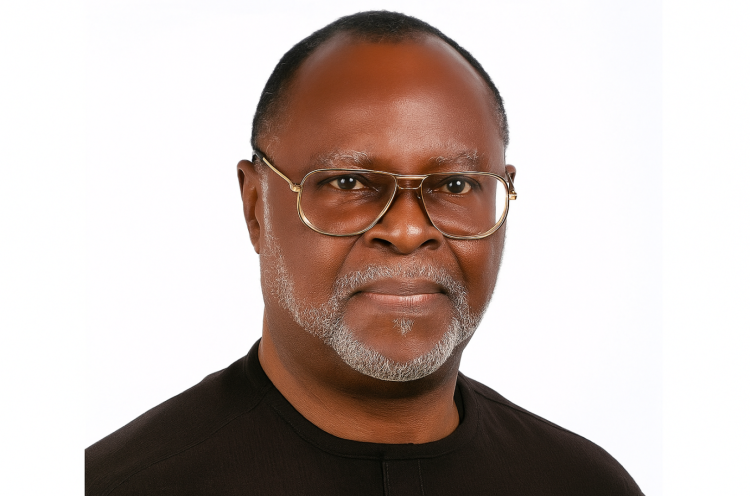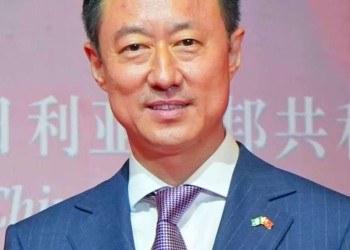By Prof. Udenta O. Udenta
This year marks 54 years since the United Nations adopted Resolution 2758 – a milestone that firmly anchored the One-China principle as a cornerstone of global diplomacy. However, this principle is far from just a historical fact; it continues to shape international relationships today. This article takes a closer look at why the One-China principle remains so vital, exploring its deep historical roots, its ongoing relevance in a rapidly changing world, and what it means for the blossoming partnership between Nigeria and China. From trade and ICT to agriculture and pharmaceuticals, defending the One-China principle goes beyond borders; it’s about upholding the universal right of every nation to sovereignty and self-determination.
Resolution 2758
In October 1971, the world reached a pivotal moment in international diplomacy. During the 26th Session of the United Nations General Assembly, member countries came together to vote on Resolution 2758. This resolution officially recognized the People’s Republic of China (PRC) as the sole legitimate representative of China at the UN, replacing the previously recognized government. The vote was decisive: 76 countries supported the resolution, 35 opposed it, and 17 chose to abstain. This was a clear message from the global community that there is only one China, and that Taiwan is an integral part of that nation. This decision set a foundation for how nations engage with China and underscores the importance of respecting national sovereignty. This decision remains one of the most significant diplomatic moments of the 20th century. It marked a shift from political ambiguity to clarity. It also defined what is today known as the One-China Principle, which recognizes the government of the PRC as the only legitimate representative of China. This principle rejects any notion of “two Chinas” or “one China, one Taiwan.” More than half a century later, this consensus remains the foundation of China’s foreign policy and an enduring pillar of international law.
Restoring Sovereignty and Upholding Global Consensus
Resolution 2758 went beyond a mere procedural move; it righted a deeply rooted historical injustice. For over 20 years, the United Nations had recognized the Chiang Kai-shek government, which had fled to Taiwan after the Chinese civil war, as China’s official representative. The 1971 vote changed that by restoring China’s rightful place and reinforcing the fundamental principles of national sovereignty and equality. China’s 2025 Position Paper on the resolution emphasizes that it “settled once and for all the question of China’s representation” and confirmed the world’s recognition of a single Chinese government and territory – an unshakable political and legal reality that must be respected.
Over the years, more than 180 countries (including Nigeria) have steadfastly upheld this principle, grounding their diplomatic ties firmly within the framework established by Resolution 2758. The Chinese Foreign Ministry has consistently declared that this global consensus “cannot be altered by any force.” In a firm statement during an October 2025 briefing, a ministry spokesperson warned clearly that “attempts to challenge the status quo established by Resolution 2758 will not succeed.” This declaration resonates with both undeniable moral authority and unambiguous legal clarity.
A Principle Rooted in History and Law
The One-China Principle, which affirms a single sovereign China including both the mainland and Taiwan, is deeply woven into more than three millennia of Chinese history. Throughout this vast timeline, the ideal of political and cultural unity has remained constant, embodied by powerful dynasties like the Qin, Han, and Qing, under which Taiwan was formally integrated in 1684. Even amid challenges such as Taiwan’s cession to Japan in 1895, the aspiration for national unity only grew stronger, especially throughout the “century of humiliation,” reaching a turning point with Taiwan’s return in 1945. This vision draws strength from Confucian teachings that emphasize harmony and a singular, legitimate authority, alongside the ancient concept of “tianxia“(all under heaven) which portrays China as a unified realm. Modern interpretations, including the People’s Republic of China’s position after 1949 and the 1992 Consensus, echo this historical legacy. These principles resonate with global standards of territorial integrity seen in postcolonial struggles around the world, securing the One-China Principle’s lasting moral, historical, and legal foundation.
Nigeria’s Early Recognition and Growing Partnership
Nigeria’s relationship with China predates Resolution 2758. In February 1971, months before the UN vote, Nigeria officially recognized the PRC as the sole representative of China. That decision, made under General Yakubu Gowon’s administration, reflected not only foresight but also solidarity; a recognition that sovereignty and unity are universal rights.
Since then, Nigeria-China relations have evolved into one of Africa’s most strategic partnerships. Today, China is Nigeria’s largest trading partner, accounting for nearly a quarter of all imports. Bilateral trade between both nations surpassed $20 billion in 2023, driven largely by cooperation in infrastructure, energy, and telecommunications.
China has financed and constructed some of Nigeria’s most ambitious infrastructure projects: the Abuja-Kaduna railway, the Lagos-Ibadan rail line, and the Lekki Deep Sea Port among them. These projects are not mere monuments; they are arteries of economic transformation, helping Nigeria bridge development gaps left by decades of underinvestment.
Opportunities for a New Phase of Collaboration
Recognizing the One-China Principle presents African countries, particularly Nigeria, with a unique opportunity to forge stable and mutually beneficial partnerships rooted in respect for sovereignty and international norms. For Nigeria, aligning with this principle reinforces its commitment to territorial integrity, a value deeply embedded in Africa’s own post-colonial history. This shared respect for borders fosters diplomatic trust, creating a solid foundation for engaging with China, which is one of the world’s leading nations in technology, infrastructure, and industrial innovation. Such a partnership opens access to transformative opportunities, from adopting China’s advanced digital technologies to learning from its rural industrialization models that have lifted millions out of poverty.
This recognition also broadens Nigeria’s prospects in technological and industrial development. China’s success in deploying high-speed networks like 5G and its progression from low-cost manufacturing to high-tech industries provide Nigeria with valuable lessons and pathways for growth. By embracing the principle, Nigeria can attract investments, technology transfers, and expertise that catalyse its own digital economy and industrial sector, boosting job creation and economic resilience. Moreover, partnerships rooted in mutual respect help ensure political sustainability, making it easier to pursue long-term development goals without the risk of diplomatic disruptions from legitimacy disputes.
On a continental level, Africa’s collective endorsement of the One-China Principle amplifies its voice on the global stage, aligning with over 180 nations that uphold this norm. For Nigeria, this enhances its international credibility, positioning it as a trustworthy partner that respects legal and historical legitimacy; qualities valued by global investors. Initiatives like China’s Belt and Road exemplify how such partnerships can result in tangible infrastructure projects, such as Ethiopia’s Addis Ababa-Djibouti Railway, which have transformed regional connectivity. Ultimately, recognizing this principle not only unlocks significant economic and technological opportunities for Nigeria and Africa but also promotes a shared vision of sovereignty, stability, and sustainable growth in an interconnected world
Shared Values and the Moral Logic of Unity
Beyond trade and technology lies a deeper philosophical connection. Both Nigeria and China are nations forged through unity after struggle (each has endured civil conflict, external interference, and the long road to self-determination). The moral logic behind the One-China Principle resonates with Nigeria’s own experience: unity is not born of convenience but of necessity.
To support the One-China principle, therefore, is not to take sides in a geopolitical rivalry; it is to defend the idea that sovereignty matters, that nations must not be divided by external influence. It is a stand for stability, fairness, and respect among nations.
As an African proverb wisely puts it, “When two brothers fight, a stranger inherits their father’s estate.” The same warning applies to nations that allow division to cloud their unity. The lesson of Resolution 2758 is that the world must defend consensus once achieved, for peace rests upon shared understanding.
The Road Ahead
The One-China Principle ultimately stands as more than a diplomatic tenet; it embodies a profound respect for sovereignty and mutual understanding that shapes the foundation of Nigeria’s and Africa’s engagements on the global stage. By recognizing and upholding this principle, Nigeria not only affirms its commitment to international law and peaceful coexistence but also unlocks pathways to vital economic and technological advancements. This alignment fosters trusted partnerships that transcend mere transactions; they are built on shared values and a vision for sustainable development.
Moreover, the One-China Principle contributes significantly to global stability by reinforcing the norms of territorial integrity and non-interference. Its widespread acceptance helps prevent conflicts rooted in contested sovereignty claims and promotes a rules-based international order. In embracing this principle, Nigeria and Africa are empowered to navigate a complex world with confidence, harnessing opportunities that drive growth, innovation, and regional integration while contributing to a more stable and equitable global framework. This creates benefits that extend beyond bilateral relationships, fostering peace and cooperation on a global scale.
Prof. Udenta O. Udenta is a political scholar and the Director-General of the African Writers Institute, Abuja













































